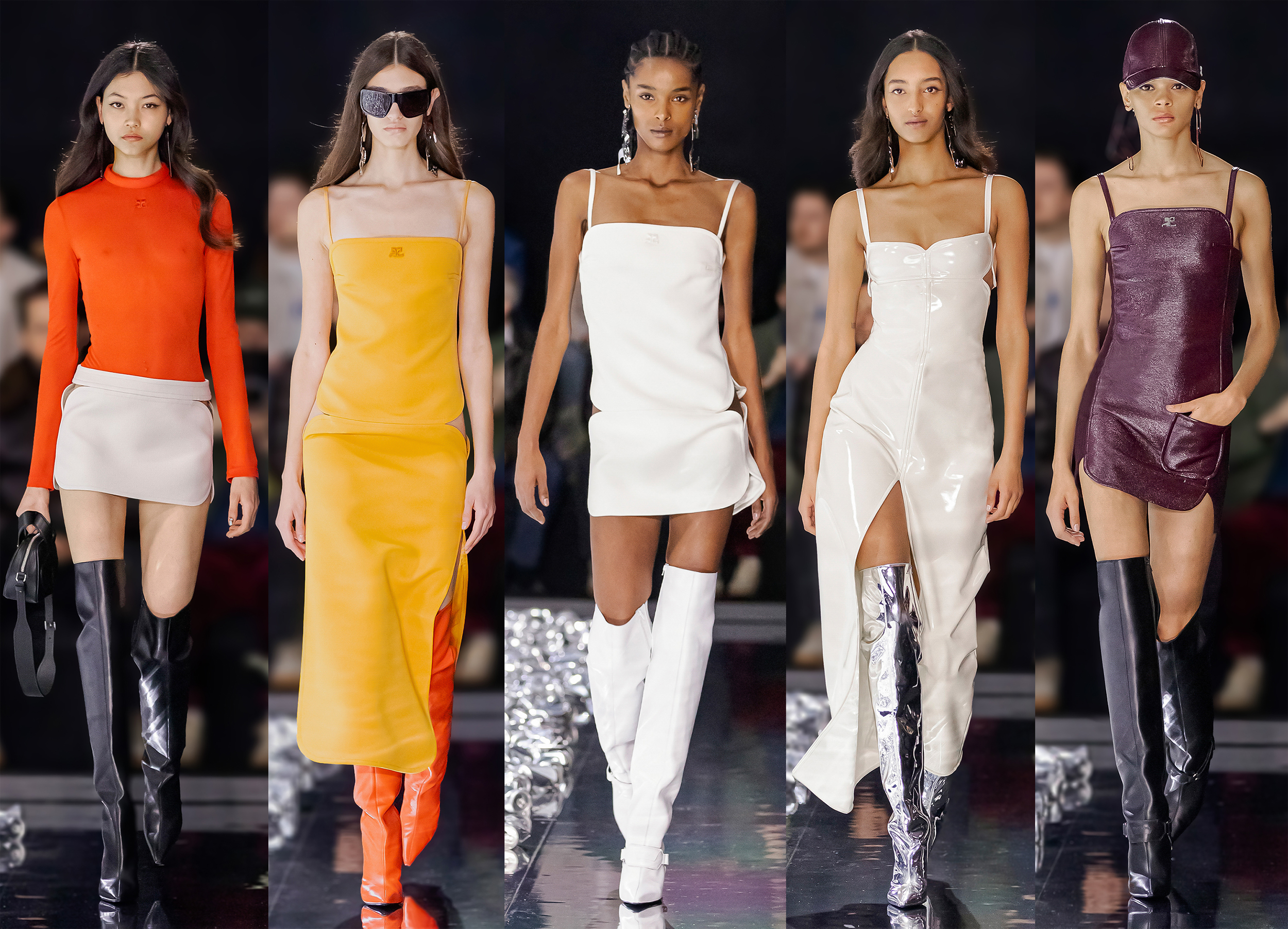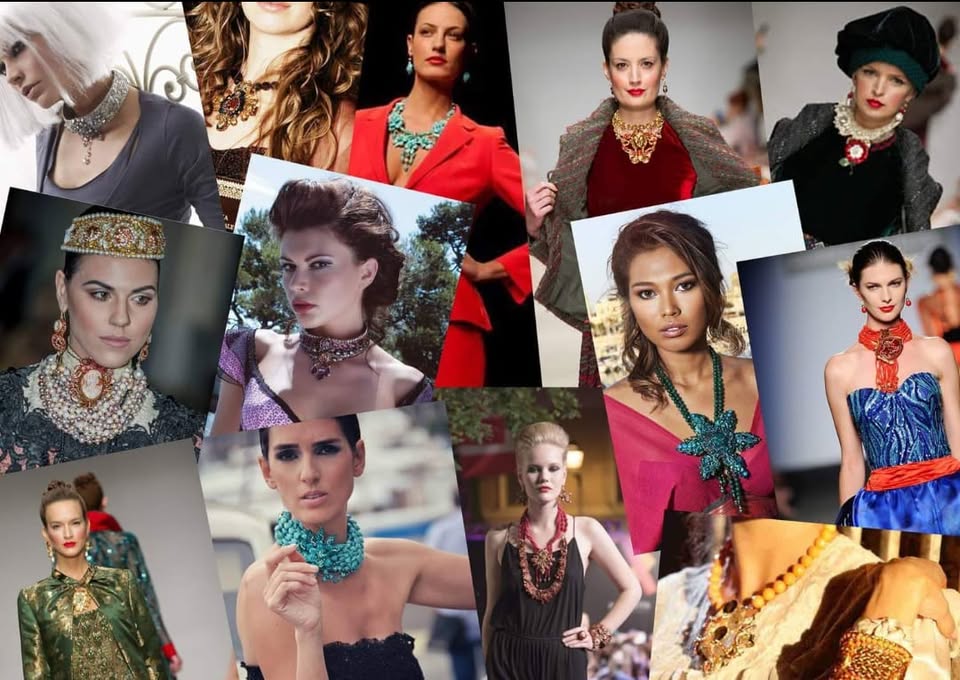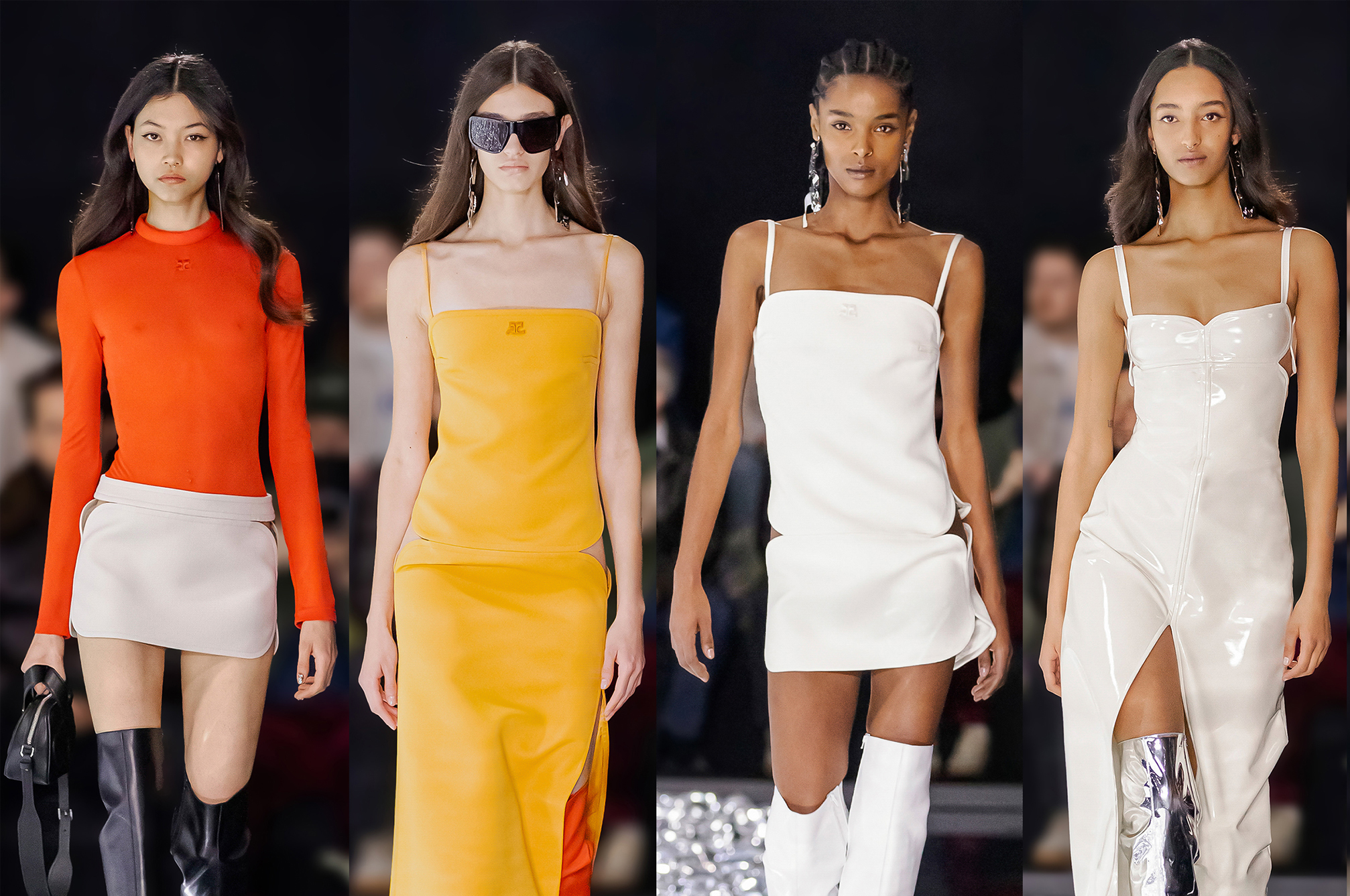

Courrèges Principle of our geometry.
Originally, a collision. 1973. Courrèges stages an absurd encounter: colourful silhouettes stroll through a junkyard. The girls smile. It -almost- seems like a game. Innocence on a background of
violence. A black setting that looks more like Nicolas Di Felice’s Charleroi than the white salons of the Rue François 1er.
A crash as a metaphor for the vision of the artistic director who thrives on disturbing contrasts.
The initial shock is reduced to its essence: a crumpled silver can. Torn up on the floor and multiplied to infinity, it forms the Courrèges square*.
One year after the white box in Aubervilliers, a black, confidential box is revealed in a Parisian alley. The entrance is sinuous, sensorial. A tunnel where bass are stifled and exposed. Shadow and light come to dialogue, expressing after the clarity of the beginnings, an emancipated thought – undoubtedly more felted.
Shade carried clear of geometric patterns: squares on the back of the heritage coat like a sprayed metal sheet or on the folded T-shirt; triangles hanging from the neck or bras on dresses; circles in the back of coats, tops or dresses. As ever, archetypal Courrèges geometric shapes are inserted. The swallow detail, the tubular collars and – for the first time – the diamond, made of the
assembly of four squares with blunt corners. In series, the primitive forms proliferate though become discreet – as absorbed by the new Courrèges. More offensive, more suggestive too. Shoes announce a statement. Bumper, stretched heels and sharp toes: the age of innocence is over.
A collection that exists only through oppositions: between light and shadow, archetype and conquest, innocence and intensity.

Courrèges Fall-Winter 22/23



KEELING AUTUNNO INVERNO 2025/26 – LA COLLEZIONE THE ANDEAN FOREST

Sophia, la modella dal portamento deciso e sicuro di sé…

Nasce il Festival Internazionale del Cinema di Pompei: un evento unico per preservare l’identità culturale

Gran successo per la Mostra d’Arte “POMPEI MMXXIV” dell’artista Dayan Nazari presentata a Pompei presso il Museo Temporaneo d’Impresa, curata dal noto stilista Nino Lettieri.


